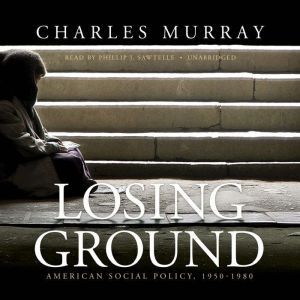

Losing Ground
American Social Policy, 1950–1980
Author: Charles Murray
Narrator: Robert Morris
Unabridged: 9 hr 26 min
Format: Digital Audiobook Download
Publisher: Blackstone Publishing
Published: 03/19/2012
Categories: Nonfiction, Political Science, Public Policy


